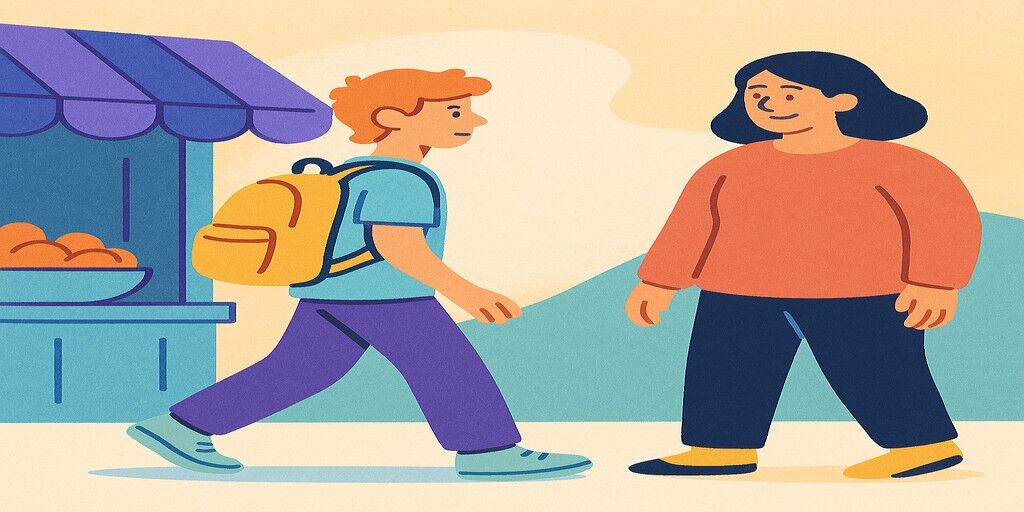We all know the look: your 15‑year‑old rolling their eyes because you insist on escorting them to the corner shop like they’re five. It turns out our overprotective habits aren’t just embarrassing, they might be undermining our kids’ mental health. A new poll from the C.S. Mott Children’s Hospital surveyed more than a thousand U.S. parents with teens and found that less than half would let their teen stay alone in a hotel room while they fetch breakfast; only a third would allow them to walk solo to a coffee shop, and barely 20 percent would permit them to roam an amusement park unsupervised. Hovering has become the norm.
Researchers note that this clampdown on independence coincides with a decades‑long rise in teen anxiety, depression and even suicide. Peter Gray, a psychologist at Boston College, points out that today’s teens have fewer chances to ride public transit alone, earn pocket money through part‑time jobs or simply get lost and find their way back. When every outing is choreographed and adult‑approved, kids don’t learn to trust their own judgment.
The good news? You don’t need to drop your child in the middle of downtown Cairo and hope for the best. Experts suggest using family outings and even chores as low‑stakes training grounds. On your next holiday, let your teen take the elevator down for breakfast by themselves and arrange a meeting time later. Give them a grocery list and cash, then send them into the store while you wait outside. Have them plan the route on the Metro and message when they arrive. Yes, there’s always a little risk, but that’s the point: learning to navigate the world builds confidence and resilience.
Closer to home, independence can start with everyday tasks. Instead of hovering over homework, let them manage their own study schedule — and deal with the consequences. Assign chores without micromanaging: if they’re in charge of laundry, resist the urge to re‑fold the towels. Encourage them to take public transport to football practice or negotiate a swap with a sibling. These small freedoms teach time management, problem‑solving and accountability.
For parents used to being chauffeurs, coaches and personal assistants, loosening control can feel scary. Yet two‑thirds of parents in the poll believed their teens would follow the rules even when unsupervised. Our kids are often more capable than we think. By letting them stumble, regroup and ultimately succeed, we’re giving them the tools to thrive when we’re not watching. And who knows? That solo trip to the coffee shop might be the moment they realise they can handle more than just their mocha order.
عارفين النظرة دي؟ لما ابنك عنده ١٥ سنة يرفع عينه فى السما لأنك مصرّ تروّحه لحد الكشك كأنه عنده خمس سنين. واضح إن عادتنا الحامية مش بس محرجة، لكنها ممكن تضر صحة أولادنا النفسية. استطلاع جديد من مستشفى سي إس موت للأطفال سأل أكتر من ألف أب وأم فى أمريكا عندهم مراهقين، ولقى إن أقل من نصهم يسيبوا ابنهم فى الغرفة لوحده فى الفندق وهم نازلين يفطروا؛ تلتهم بس يسمح لابنه يروح الكافيه لوحده، و٢٠٪ بس يرضوا يسيبوه يلف فى ملاهى من غير مرافق. إحنا بقينا «هليكوبتر» شغالة فوق راسهم.
الباحثين بيقولوا إن الخنقة دى جاية مع زيادة كبيرة فى قلق واكتئاب وانتحار المراهقين فى آخر كم سنة. عالم النفس بيتر جراى بيشرح إن ولاد النهارده بقى عندهم فرص أقل يركبوا المترو لوحدهم أو يشتغلوا شغل بسيط أو حتى يضيعوا ويلاقوا طريقهم تانى. لما كل خروجة تبقى تحت إشراف الكبار، العيال مابيقدروش يثقوا فى حكمهم.
الخبر الحلو؟ مش لازم ترمى ابنك فى وسط وسط البلد وتقول له «اتصرف». الخبراء بيقولوا إنك تقدر تستخدم طلعات العيلة وحتى الأعمال البيتية كمساحة تدريب آمنة. فى رحلتك الجاية، خلى ابنك ينزل يفطر لوحده واتفقوا على ميعاد تقابلوا فيه بعدين. إديله قائمة مشتريات وفلوس وخليه يدخل السوبرماركت لوحده وإنت تستناه بره. سيبه يخطط طريق المترو ويبعتلك لما يوصل. آه، فى خطورة بسيطة بس ده المطلوب: تعلمه يواجه العالم يبنى ثقة وصمود.
فى البيت، الاستقلالية تبدأ من المهام اليومية. بدل ما تراجع على الواجب، سيبه يرتب وقته لوحده ويتحمل النتيجة. وزع أعمال منزلية من غير ما تفضل واقف فوق راسه: لو هو مسئول عن الغسيل، ما تعيدش طى المناشف بعده. شجعه يركب مواصلات لتمرين الكرة أو يبدل وردية مع أخوه. الحرية الصغيرة دى بتعلم إدارة الوقت وحل المشكلات وتحمل المسئولية.
لو إنت متعود تبقى السائق والمدرّب والمساعد الشخصى، تخفيف التحكم ممكن يبقى مرعب. لكن الاستطلاع لقى إن حوالى تلتين الأمهات والآباء واثقين إن أولادهم هيلتزموا بالقواعد حتى من غير رقابة. أولادنا قادرين أكتر مما نتخيل. لما نسيبهم يتعثروا ويقوموا وينجحوا، إحنا بنديهم الأدوات اللى هيحتاجوها لما نبطل نبص. ومين عارف؟ يمكن أول فنجان قهوة يشتروه بنفسهم يكون اللحظة اللى يكتشفوا فيها إنهم يقدروا يعملوا أكتر من طلب قهوة.
Sources:
– Science News coverage of the Mott Poll on parents’ reluctance to give teens independence.
– Mott Poll Report, “Traveling with teens: Independence Day?” (June 16 2025).







Leave a Reply
You must be logged in to post a comment.